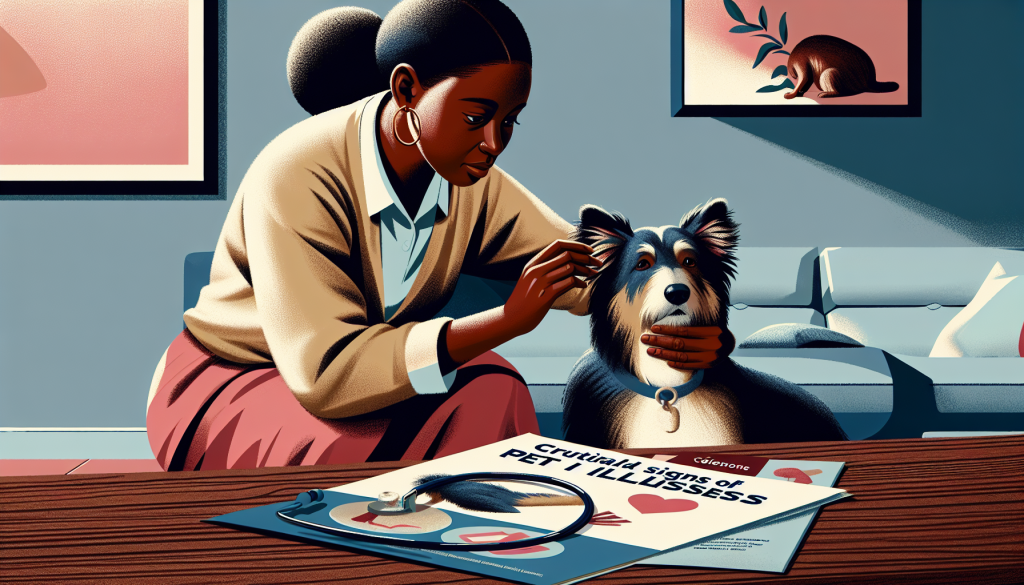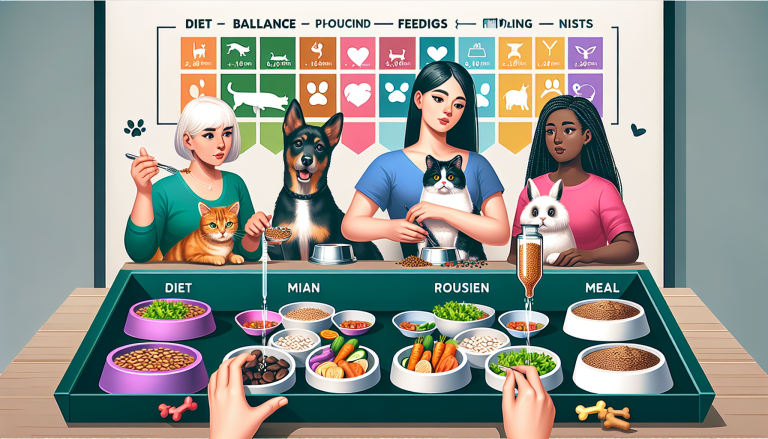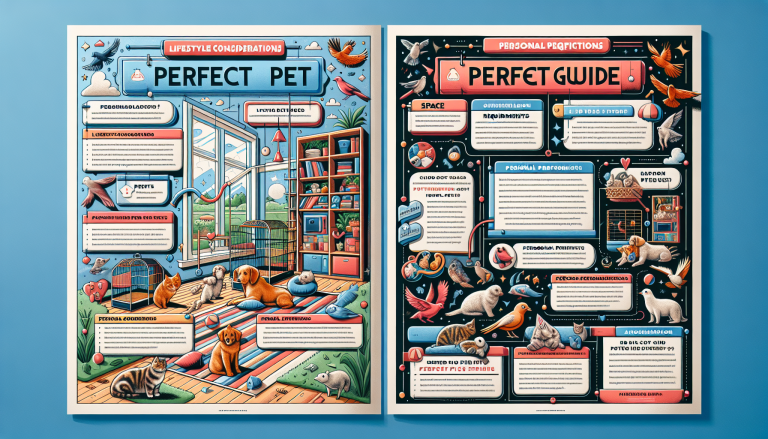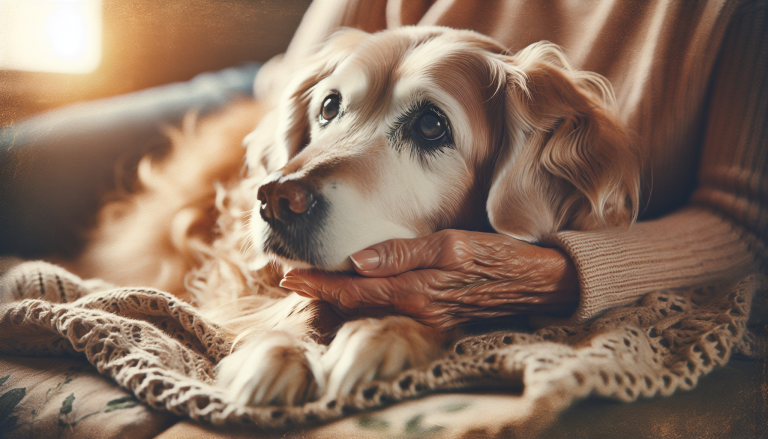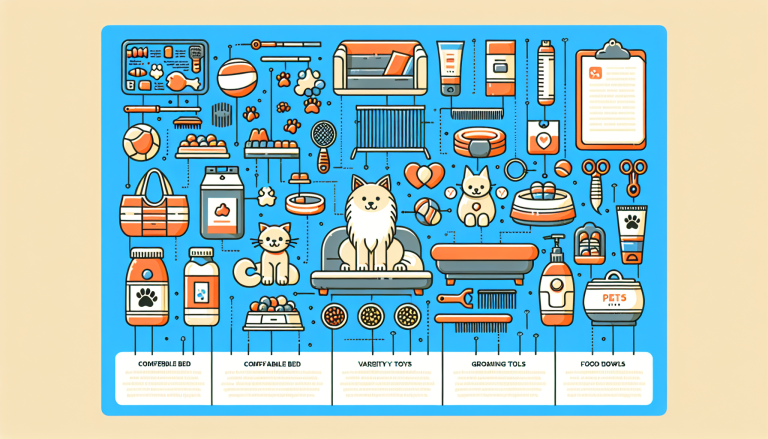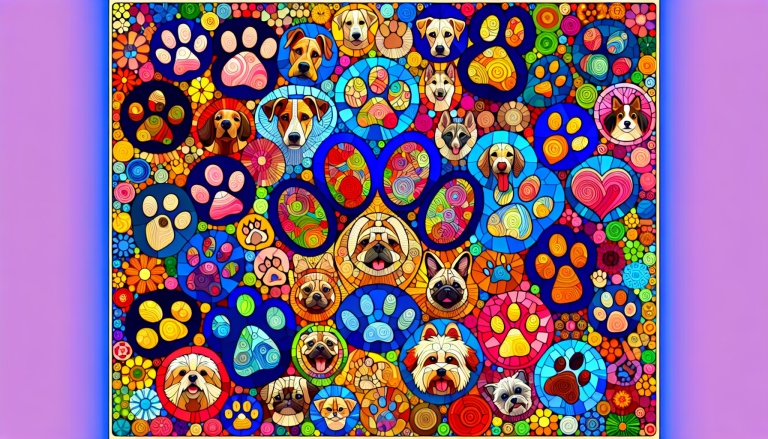If you’re a pet owner, it’s crucial to pay attention to your furry friend’s well-being. Sometimes, however, it can be challenging to determine whether your pet is simply having a bad day or if they require medical attention. That’s why we’ve compiled a list of 10 signs that indicate your beloved pet may need to see a veterinarian. From changes in appetite to unusual behavior, being aware of these warning signs will ensure that you’re able to provide the necessary care for your furry companion.
Table of Contents
ToggleChanges in Behavior
Loss of Appetite
If your pet suddenly loses interest in food or stops eating altogether, it could be a sign that something is wrong. Loss of appetite can be caused by a variety of underlying issues, such as dental problems, gastrointestinal disorders, or even emotional distress. It is important to monitor your pet’s eating habits and consult a veterinarian if the loss of appetite persists for more than 24 hours.
Excessive Thirst or Urination
If your pet seems to be drinking an excessive amount of water or needing to urinate more frequently than usual, it could be an indication of an underlying health problem. Conditions such as diabetes, kidney disease, or hormonal imbalances can cause these symptoms. It is crucial to keep an eye on your pet’s water intake and bathroom habits and seek veterinary attention if you notice any significant changes.
Lethargy
Is your furry companion lacking their usual energy and enthusiasm? If your pet seems unusually tired or lethargic and shows no interest in activities they once enjoyed, it might be a cause for concern. Lethargy can be a symptom of various medical conditions, including infections, pain, or organ dysfunction. If your pet’s lethargy persists for more than a day or is accompanied by other worrisome signs, schedule a visit to the veterinarian.
Aggression or Unusual Irritability
If your pet becomes unusually aggressive or easily irritable, it could indicate an underlying issue that needs attention. Behavioral changes like aggression or irritability can stem from pain, fear, anxiety, or medical conditions affecting the brain or nervous system. It is important to consult a veterinarian who can assess your pet’s behavior and determine if there are any underlying health concerns.
Physical Abnormalities
Weight Loss or Gain
Sudden weight loss or gain in your pet can be a telltale sign that something is amiss. While weight changes can result from various factors including dietary changes or aging, significant and unexplained fluctuations should not be ignored. Weight loss may be a symptom of conditions like thyroid problems or gastrointestinal disorders, while weight gain can indicate hormonal imbalances or overeating. Consulting with a veterinarian will help identify the cause and ensure proper treatment.
Frequent Vomiting or Diarrhea
Frequent vomiting or diarrhea can be distressing for both you and your pet. These symptoms can stem from dietary issues, allergies, infections, or serious medical conditions. If your pet experiences these digestive upsets regularly, it is recommended to consult with a veterinarian to determine the underlying cause and prevent dehydration or further complications.
Coughing or Difficulty Breathing
Coughing or difficulty breathing can be indicative of respiratory problems in your pet. Whether it’s due to allergies, infections, heart disease, or other respiratory disorders, it is important to have your pet evaluated by a veterinarian. Prompt medical attention can help determine the cause and provide the necessary treatment to alleviate your pet’s discomfort and improve their overall respiratory health.
Visible Wounds or Lumps
It is essential to regularly examine your pet’s skin for any visible wounds, lumps, or bumps. These abnormalities may be signs of injury, infection, or even cancer. While not all lumps or wounds are necessarily harmful, it is crucial to have them assessed by a veterinarian to ensure proper diagnosis and treatment if necessary.
Gum or Tongue Discoloration
Discoloration of the gums or tongue in your pet can be an indicator of dental problems or other health issues. Healthy gums should appear pink, while discoloration such as pale or yellowish gums can suggest anemia, liver disease, or poor oral health. Monitor your pet’s oral hygiene and consult with a veterinarian if you notice any abnormalities in their gums or tongue.
Digestive Problems
Persistent Bad Breath
If your pet’s breath has suddenly become persistently foul, it may indicate dental issues or other gastrointestinal problems. Persistent bad breath can be caused by dental infections, gum disease, or even underlying systemic diseases. Regular dental care and routine check-ups with a veterinarian can help identify and address the underlying cause of your pet’s bad breath.
Changes in Bowel Movements
Monitoring your pet’s bowel movements is crucial for gauging their digestive health. Changes in the frequency, consistency, or color of your pet’s stools can indicate gastrointestinal issues, food intolerance, or even parasites. If you notice persistent changes in your pet’s bowel movements, it is advisable to consult with a veterinarian to determine the cause and provide appropriate treatment.
Bloating or Abdominal Pain
Bloating or abdominal pain in your pet can be a sign of several potential problems, including gastrointestinal issues, organ dysfunction, or intestinal blockages. If your pet exhibits symptoms such as a distended belly, discomfort, or reduced appetite, it is important to seek veterinary attention promptly. These signs may indicate a serious condition that requires immediate medical intervention.
Loss of Control of Bladder or Bowels
Loss of control over bladder or bowel function can be distressing for both pets and their owners. Incontinence or accidents in the house can be a symptom of urinary tract infections, hormonal imbalances, spinal problems, or age-related issues. If your pet is experiencing loss of control over their bodily functions, consulting with a veterinarian will help identify the underlying cause and explore appropriate management options.
Skin and Coat Issues
Unexplained Hair Loss or Bald Patches
If your pet is experiencing sudden hair loss or the appearance of bald patches, it could indicate a skin condition or an underlying medical problem. Allergies, parasites, hormonal imbalances, or stress can contribute to hair loss in pets. A thorough examination by a veterinarian will help determine the cause and recommend appropriate treatment to restore your pet’s healthy coat.
Persistent Itching, Scratching, or Licking
Frequent itching, scratching, or licking can be indicative of skin irritations, allergies, or infestations. If your pet seems to be excessively grooming or scratching themselves, it could cause further skin damage or introduce infections. Consult with a veterinarian to identify the underlying cause and provide relief for your pet’s discomfort.
Rashes, Sores, or Redness
The appearance of rashes, sores, or redness on your pet’s skin should not be ignored. These visible signs may be due to allergies, infections, or other skin conditions. Early diagnosis and proper treatment are essential to prevent the progression of these issues and provide relief to your pet.
Foul Odor
An unpleasant or persistent foul odor emanating from your pet’s skin or coat can indicate an infection or other underlying health problems. Conditions such as yeast or bacterial infections can cause odorous symptoms. A veterinarian can help diagnose the cause of the odor and recommend an appropriate treatment plan to improve your pet’s skin health and eliminate the unpleasant smell.
Eye and Ear Problems
Redness, Discharge, or Swelling in the Eyes
Redness, discharge, or swelling in your pet’s eyes can be signs of irritation, infection, or even more serious eye conditions. If you notice any of these symptoms, it is important to seek veterinary attention for a proper diagnosis and treatment. Prompt intervention can help prevent further damage to your pet’s vision and alleviate any discomfort they may be experiencing.
Excessive Tearing or Squinting
Excessive tearing or squinting in your pet’s eyes can be an indication of eye irritation or infection. Tear stains or excessive discharge around the eyes can also suggest underlying eye problems. If your pet exhibits these symptoms, consult with a veterinarian to determine the cause and ensure appropriate treatment for your pet’s eye health.
Unusual Ear Odor, Discharge, or Scratching
Foul odor, discharge, or excessive scratching of the ears can be signs of ear infections or other ear-related issues. Pets with long floppy ears, such as certain breeds of dogs, are particularly prone to ear problems. It is important to have your pet’s ears examined by a veterinarian to diagnose and treat any underlying ear conditions to avoid discomfort or potential hearing loss.
Mobility Difficulties
Limping or Lameness
If your pet is limping or showing signs of lameness, it could indicate orthopedic issues, joint pain, or musculoskeletal injuries. Witnessing your pet experience difficulty while walking or moving can be distressing. Seeking veterinary care will not only help alleviate your pet’s pain but also prevent further injuries or complications.
Stiffness or Difficulty Moving
Stiffness or difficulty moving can be a symptom of joint diseases like arthritis, especially in older pets. These conditions can cause pain, discomfort, and reduced mobility. If you notice your pet struggling to move or appearing stiff after rest, a veterinarian can provide proper diagnosis and recommend treatments to improve your pet’s mobility and quality of life.
Reluctance to Jump, Climb, or Walk
If your pet is reluctant to engage in activities they once enjoyed, such as jumping, climbing, or walking, it could be a sign of musculoskeletal problems or pain. Reduced mobility can affect your pet’s overall well-being and happiness. Seeking veterinary attention will help assess the underlying cause and provide appropriate management to restore your pet’s mobility.
Urinary or Reproductive Issues
Frequent Urination or Straining
Frequent urination or straining while urinating can be symptoms of urinary tract infections, bladder stones, or other urinary tract issues. These conditions can cause discomfort and potentially lead to more severe complications if left untreated. Observing your pet’s urination habits and promptly consulting with a veterinarian can help identify the problem and prevent further complications.
Blood in Urine
The presence of blood in your pet’s urine, known as hematuria, is a concerning sign that necessitates veterinary attention. Hematuria can be caused by various conditions, including urinary tract infections, bladder stones, or even more severe kidney disease or cancer. Timely diagnosis and treatment by a veterinarian are crucial to determine the underlying cause and prevent potential complications.
Swollen or Painful Genitalia
If you notice swelling or signs of discomfort around your pet’s genital area, it could indicate urinary tract infections, reproductive organ issues, or trauma. These symptoms should not be ignored, as they may require immediate attention from a veterinarian to alleviate pain and prevent further complications.
Abnormal Discharge
Any abnormal discharge from your pet’s genitalia can be concerning and may signify reproductive issues or infections. It is essential to monitor your pet’s discharge and consult with a veterinarian if you notice any unusual color, consistency, or odor. Early detection and appropriate treatment can help prevent the progression of these issues and maintain your pet’s reproductive health.
Dental Problems
Excessive Drooling
Excessive drooling in pets can be an indication of various dental issues, such as gum disease, dental infections, or oral tumors. Excessive drooling or salivation should not be dismissed as a normal occurrence. Routine dental care and regular check-ups with a veterinarian can help prevent and address these dental problems.
Swollen or Bleeding Gums
Swollen or bleeding gums can be a sign of periodontal disease or other oral health problems in your pet. Neglecting oral hygiene can lead to painful infections, tooth loss, and systemic health issues. Regular dental examinations and professional cleanings are essential for maintaining your pet’s dental health and preventing further complications.
Broken or Loose Teeth
If your pet has broken or loose teeth, it can cause discomfort and pain while eating or chewing. Broken teeth can occur due to trauma, periodontal disease, or weakened teeth. A veterinarian can evaluate the cause of the dental issue and recommend necessary treatments, which may include extractions or other dental procedures.
Changes in Eating or Drinking Habits
Refusal to Eat
A sudden refusal to eat can be concerning and potentially a sign of various underlying health issues. Dental problems, gastrointestinal disorders, or even emotional distress can contribute to a loss of appetite in pets. It is important to monitor your pet’s eating habits and consult with a veterinarian if the loss of appetite persists.
Excessive Thirst
If your pet is constantly seeking water and displaying excessive thirst, it may indicate an underlying medical condition. Frequent drinking can be a symptom of diabetes, kidney disease, or hormonal imbalances. Monitoring your pet’s water intake and consulting a veterinarian if you notice a significant increase can help identify any underlying issues and provide appropriate treatment.
Difficulty Chewing or Swallowing
If your pet demonstrates difficulty while chewing or swallowing, it may indicate dental problems or other issues within the mouth or throat. Discomfort or pain associated with these activities can significantly affect your pet’s ability to eat and may lead to malnutrition. Seeking veterinary attention will help identify the cause and provide appropriate treatment to alleviate your pet’s discomfort and ensure proper nutrition.
Unusual Vocalizations
Excessive Whining or Crying
Excessive whining or crying in your pet can be an indicator of pain, anxiety, or distress. Unusual vocalizations should be taken seriously as they may suggest underlying medical conditions or emotional discomfort. Consulting with a veterinarian will help determine the cause of your pet’s distress and provide guidance on appropriate management strategies.
Persistent Howling or Barking
Persistent howling or barking can be a sign that your pet is trying to communicate something, such as fear, anxiety, or discomfort. These vocalizations may also indicate underlying medical conditions affecting your pet’s well-being. A veterinarian can assess your pet’s behavior and health to determine if there are any underlying concerns that need attention.
In conclusion, it is crucial to pay attention to any changes or abnormalities in your pet’s behavior, physical appearance, digestive functions, skin and coat, eye and ear health, mobility, urinary or reproductive functions, dental health, eating or drinking habits, and vocalizations. Recognizing these signs early on and seeking veterinary attention can help ensure timely diagnosis, appropriate treatment, and overall well-being for your beloved furry friend. Remember, proactive care is the key to keeping your pet healthy and happy!

